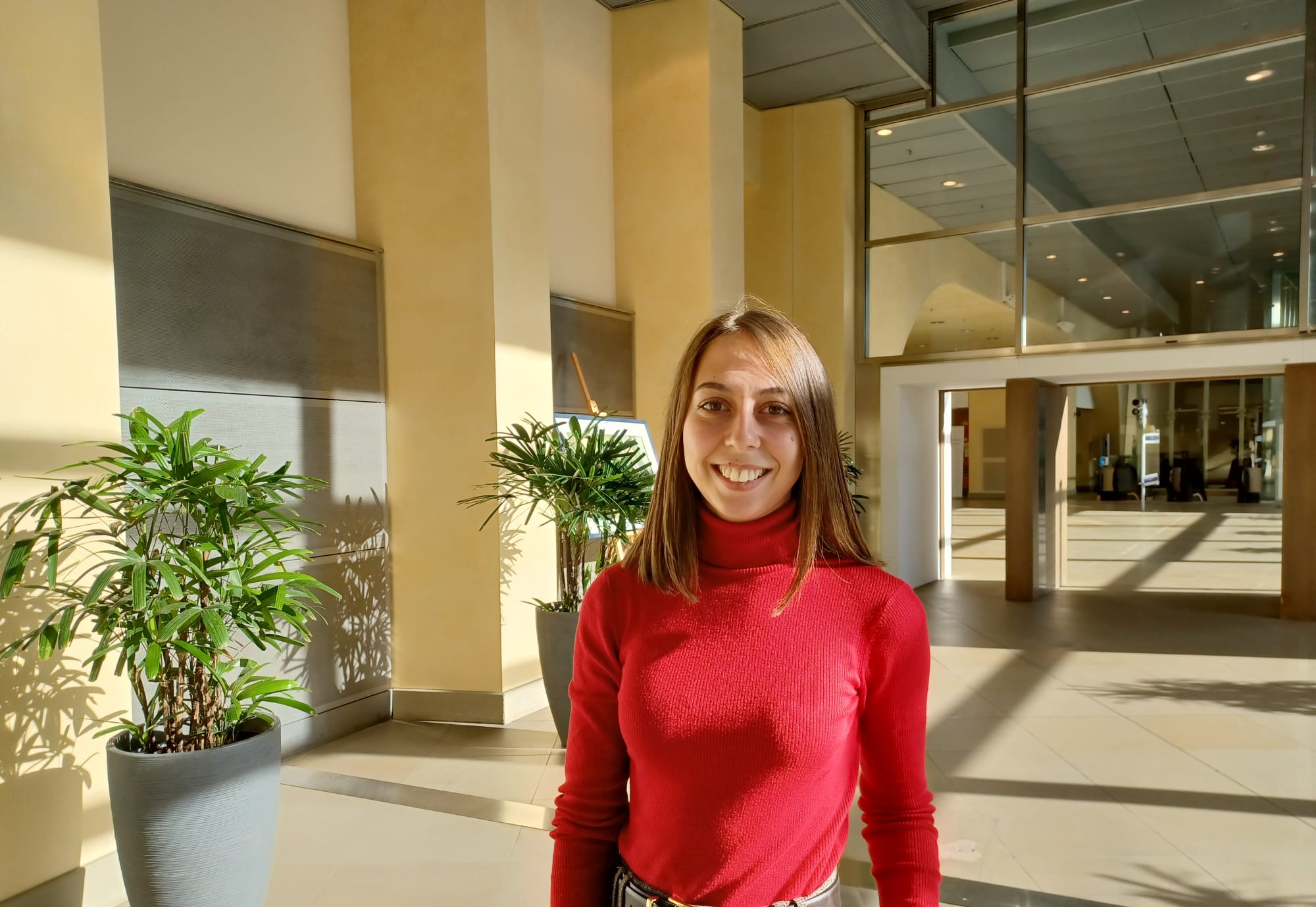In our regular series We Make Denmark Work, meet the internationals making an impact on Danish business.
Cintia Bartus, born in the small town of Mezőtúr in the east of Hungary, has been living in Copenhagen since 2019.
Could you summarise your educational background?
I always knew I was interested in cultural and societal issues. It motivates me to know that my work has an impact. With that in mind, I went to study sociology and did my Bachelor’s dissertation on refugees in Budapest, based on interviews that focused on cultural identity and belonging.
Then, I did a masters in international development. I was volunteering a lot at that time with non-governmental organizations like Stella Charity, which provides education for kids in Colombia and seeks to prevent underage pregnancy. I was also volunteering with Amnesty International, where I gave school talks on topics related to human rights. I have never been so much of a public speaker, so it was challenging.
And your work history?
Via Erasmus-programs, I have taken part in projects like working with an advocacy agency focused on human rights abuses in Bahrain. I have worked in Budapest with UNHCR, where I maintained a library system. Recently, I spent 8 months in Brussels working at the European Commission. I participated in the Blue Book Program and had the chance to work with the Directorate-General for Reform. Projects focused on development in education, health, finance, etc.
Have you lived in any other countries?
Yes, the first country I spent significant time in – and not as a tourist – was Poland. I went for a youth exchange, under the European Voluntary Service.
Although it is not the most exotic place, it was a life-defining experience. It completely changed my perspective. It was the first time I took a plane, met people outside my country and had to speak English daily. It was a catalyst for all my further experiences abroad. I saw the potential of getting out of your comfort zone, how it changes you and opens your mind. That is the reason why I travelled so much. After that, I went to Italy, as an au pair. I also spent four months in Iceland, where I completed my Erasmus semester at the University of Bifrost.
READ ALSO: Tips: How to get along with your Danish colleagues
What is the best country you lived in?
I guess my favourite is Italy, but I also love Iceland. It is the farthest I have been and I liked my experience there.
What is your current role and what does it entail?
I am currently working at The Museum for the United Nations. It is not a museum in the traditional sense because we don’t have one physical space. We work through different projects, unleashing the power of culture, and our goal is to connect people to the values and work of the United Nations. Personally, I work with operations and I’m also an executive assistant for the leadership. That involves daily administration, scheduling and organization of internal events.
Is this your dream career or are you still gravitating towards something else?
I’m definitely on my way. It is a good start and I’m happy to find something in my field. But, there are still different kinds of work within an organization for me to discover and enjoy. I am passionate about projects and programs as well as culture.
International workers bring great value to Denmark – how would you assess your
contribution?
Mine is like everyone else’s. Besides going to work every day and being self-sustaining, I put effort into learning Danish and trying to adapt to Danish values and lifestyle.
How has your education, experience or international know-how given you an advantage over your Danish colleagues?
When we are having a personal conversation, I can see that maybe my outsider perspective is helpful. It depends a lot on where you come from. It goes the other way too: I learn something every day, and see many things in a different light.
What’s it like being an international in a Danish work environment?
I work at a mostly international organization and we have a lot of global colleagues online joining us from Kenya, and the Danish people that we have in the office have been living abroad for years too. So, I think it’s not the same as in a small, local organization.
What are three things that have surprised about your working life in Denmark?
There is a good amount of trust. For instance, you don’t have to submit a doctor’s note if you have a cold, and work arrangements are also fairly flexible. It gives a lot of freedom to employees and lays the foundation for a well-balanced week.
What’s the best thing about working in Denmark?
It is definitely the working culture. People are very respectful and there is a lot of communication. Nothing goes unnoticed and there is a lot of positive feedback – which is important for me.
What do you miss about working in your home country?
I miss speaking in my first language. Sometimes it is nice when you can just give your brain a break or understand everything that is going on around you.
What advice would you give to somebody contemplating a career in Denmark?
Be patient, try to focus on the values that you can bring to the workplace, and be open.















